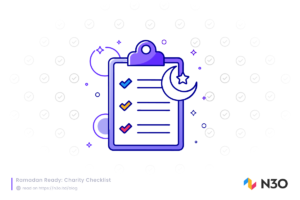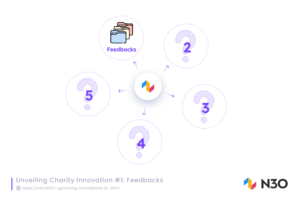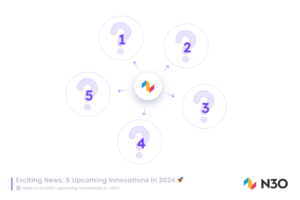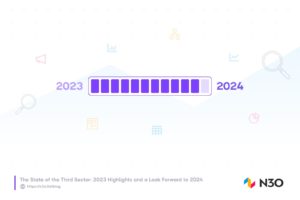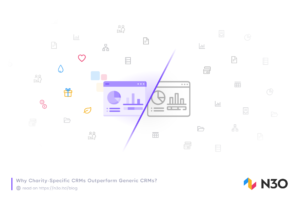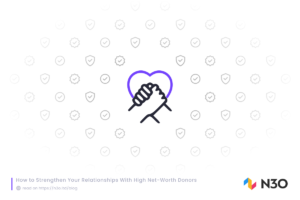A survey conducted by Charity Digital reports that 22% of charities as not using a CRM. This may be due to these charities not perceiving it’s actual benefits. When asked about what they think a CRM can do for them, their response was as below:
- 58% said for managing supporters, donors, and beneficiaries
- 8% said for business intelligence and reporting
- 6% said for volunteer management
- 7% said they do not know
The above indicates an interesting point – not all charities understand the need for a CRM. While we agree with the majority that CRMs help manage donors and supporters, we firmly believe a CRM does much more. It increases efficiency, saves money, increases fundraising and helps drive an organisation forward.
A possible reason for the above misunderstanding is charities reviewing generic CRMs and not appreciating the benefit of charity-specific systems. In this article, we will delve into how a charity-specific CRM compares to generic, industry-general systems.
1. Charities Collect Donations. They Don’t Sell Products
A Customer Relationship Management (CRM) system in the not-for-profit sector becomes a Constituent Relationship Management solution. One might argue that charities sell ‘fundraising projects’ as products to their donors, however this analogy is unfortunately incorrect. Collecting for a fundraising project is very different from selling a digital or physical product.
For this reason, charity-specific CRMs are built on the concept of collecting donations rather than selling products. A charity CRM manages an intricate network of connections, from donors and beneficiaries to volunteers. An integral part of these relations is collecting different data types associated with each.
For instance, accepting donations requires information about the donor/ individual, tax relief status, the purpose of the donation, location, unique transaction ID, consent preferences, and more. The following table gives an overview of the data charities have to collect when collecting donations.

The table above shows various data points contributing to a holistic view of a single donation. These are necessary for multiple reasons, including GDPR compliance, transaction reconciliation, correct reporting, and assessment of funds availability. A generic CRM comes with limited capabilities around data collection, which can impact your organisation’s reporting effectiveness, necessitate significant manual efforts, or lead to compliance issues.
However, a charity CRM is specifically equipped to handle the multitude of data related to constituent relationship management.
2. Importing data from multiple sources
Charities continuously collect data from multiple sources related to donors, beneficiaries, or volunteers. Different data sources include charity websites, fundraising events, and crowdfunding websites. Traditional CRMs allow basic data imports, while charity-specific CRMs come with advanced or robust data import options. They support multiple data types from various sources.
For instance, charities must import the actual pledge, donation, and accounts related to those donations from crowdfunding websites. They may even need to import the lead fundraiser and overall target. Generic CRMs don’t handle these complexities, while charity-specific CRMs are built for these data imports.
Also, not all charity CRMs are the same. Some only support basic data imports, while others offer high-level data imports. Engage allows the following imports in CSV and JSON formats:
- Donations
- Feedbacks
- Pledges
- Regular giving
- Sponsorships
- Donor accounts
- Calls data and more.
Not just this, you can also tell Engage how to handle the provided data. For instance, you might want to create new donor accounts that became affiliated with your charity on a fundraising event, or you can simply update (specific fields) in the existing donor accounts.
In short, these advanced data import features, along with data exports, make data management hassle-free for charities. They also reduce or eliminate human errors that result from manual data handling.
3. Charity-Specific Functionalities
Generic CRMs don’t specialise and thus lack an in-depth understanding of the ins and outs of how a charity organisation runs its day-to-day operations. However, charity-specific CRMs have functionalities built around specialised charity functions such as sponsorships, pledges, gift aid/tax relief, call centres, and more. Below, we explore how charity-specific CRMs help you make the most out of these specialised features.
Sponsorships
Sponsorships are a distinct giving type. They refer to the financial support individuals or organisations provide to charitable causes. These arrangements involve the flow of funds from sponsors to beneficiaries. Sponsorships help the charity fulfil its mission or carry out specific projects such as sponsoring orphans, children, and families. In return, charities provide acknowledgement, recognition, or other benefits depending on the terms of the sponsorship agreement.
Charities act as dynamic mediators in managing and maintaining this relationship between donors and beneficiaries. Thus, they need a CRM that understands various aspects of this giving type. Broadly speaking, sponsorship management includes making donations, tracking donors, assigning donations to beneficiaries, regular reporting, and chasing renewals.
In contrast, generic CRMs tend to generalise this unique set of transactions and offer limited flexibility. For instance, a sponsor might want to stop sponsoring a cause for whatever reason. This results in the charity transferring that sponsorship to another sponsor. Similarly, charities sometimes have to replace the beneficiaries as they mature and assign a new one.
From creating to extending to transferring and cancelling, charities need to manage the complete lifecycle of a sponsorship. And charity-centric CRMs are better able to provide seamless sponsorship handling.
Call Centre
Communication is integral to charitable organisations. A significant portion of funds for charities comes from maintaining communications with its stakeholders. Thus, charities rely on call centres to keep them engaged. Call centres are important for running fundraising campaigns, event promotion, volunteer recruitment, donor engagement, emergency appeals and surveys/feedback.
Side Note: While some argue that an outsourced call centre is good for charities, we believe in-house call centres are far more efficient. Read this article for a detailed comparison of the two. A charity CRM with a call centre module/feature offers benefits like reduced operational costs, increased engagement, data security, and more.
Non-charity-specific CRM systems and even some charity-centric CRMs also lack this capability. Leaving charities to invest both time and human resources in integrating third-party call centre functionality. Outside looking in, these providers lack a nuanced understanding of a charity’s causes and communication.
However, an in-house call centre offers powerful integration/functionality when coupled with a CRM’s features. For instance,
- It allows you to manage inbound and outbound calls.
- Run data requests within the system.
- Manage teams and track staff shifts and call durations.
- Create reports and monitor staff performance with real-time income vs targets.
- Set up and run call campaigns.
- Follow up with your donors with automation, whether it’s an email, text or letter.
Gift Aid
Charities often utilise gift aid as a way to boost their fundraising efforts. Gift aid increases the value of donations. With gift aid schemes, charities in the UK can claim an extra 25p for every £1 (taxpaying) donors give.
Charities periodically submit claims to HM Revenue & Customs (HMRC) for the gift aid they are entitled to reclaim. The claim includes details of the eligible donations and the associated gift aid declarations. And this process requires charity systems to be able to collect, store, and extract the required data.
When charities submit a gift aid claim, they must provide certain information to HMRC. The major details typically required for claiming gift aid include:
- Valid Gift Aid declarations from donors. These declarations confirm that the donors are eligible for gift aid and permit the charity to reclaim tax on their donations.
- Accurate records of donor information. This includes the names and addresses of donors making gift aid-eligible donations.
- Information about the donations for which charities are claiming gift aid. This includes the amount of each donation and the date it was made.
With a charity-specific CRM’s gift aid feature, you can extract the donors eligible for gift aid (tax relief). You can even set up automatic submission of eligible gift aid donations to your local government authority.
4. Payment Method Integrations
Charities have to accept donations in multiple ways. For instance, donations come in as:
- Direct donations (both online, such as credit/debit cards, and offline, such as cheque and cash)
- Bank transfers
- Crowdfunding
- Grant fundings
- Corporate giving
- Sponsorships
- Fundraising (online and offline)
- Membership fees
- Door-to-Door collections
- Phone solicitations
- And more.
Thus, accepting payments from donors, no matter the source, platform, and location, is paramount for charities. Charity-specific CRMs can accept donations using various payment methods across various regions. On the other hand, generic CRMs are limited to some popular payment methods like Stripe or PayPal. Nevertheless, different locations require different payment methods.
For instance, Adyen is a popular payment method in France, and WorldPay is used most in the UK. Keeping this in mind, charity-centric CRMs are designed by default to handle payments through multiple payment processors and locations.
Charity-specific CRMs can stay updated with the latest trends of what and how to collect donations and incorporate that into the CRM. While traditional CRMs might not allow that level of flexibility with limited available integrations.
In extreme cases of emergency and high-risk environments, charities are prone to have their bank accounts closed. Also, it’s common to face suspension of their payment provider. In other cases, the payment gateway provider may cease to operate because they send money to places like Syria or Palestine. In such scenarios, the ability of a CRM to handle payment requests determines their incoming donations.
Thus, charity CRMs allow you to easily switch and integrate different payment methods so your operations don’t stop.
5. Personalised Engagement
Donors require personalised engagement and information. For example, they may want a list of all of their yearly donation data for tax purposes. They may need tax statements like in the US and Canada. Someone who donated to build a water well might expect a certificate in addition to a normal receipt. This personalised engagement makes them feel appreciated.
Personalised emails are another way to keep your donors engaged. You might want to email when someone donates, with a thank you note and the details of their donation. In the case of sponsorships, sponsors like to stay updated with the progress of their supported cause. You can send reports to communicate how their contributions are helping beneficiaries or charitable initiatives.
Some donors prefer print over electronic communication. For instance, a donor sponsoring an orphan might not just be expecting an email with a PDF but also like it to be printed and sent to their house. A lot of charities do this with orphan sponsorship packs. You can automatically create and run print batches of such correspondence with a charity CRM.
A charity-centric CRM streamlines this information with default templates and automation not found in off-the-shelf CRMs.
You can also implement donor segmentation for targeted communication and personalised engagement. These CRM systems allow charities to segment their donor base based on various criteria, such as donation frequency, giving amount, etc. With segmented lists, charities can send targeted and relevant messages to specific donor groups.
6. Intricate Financial Management
A charity CRM system helps charities manage fund balances and handle intricate financial management. Here’s how:
It maintains detailed records of donor contributions. Charities can track each donation accurately. Moreover, these donations can be attributed to specific campaigns, events, or fundraising efforts.
Charity-specific CRM assists in organising and tracking fundraising campaigns. Charities can monitor the progress of each campaign, assess its financial impact, and make data-driven decisions for future initiatives. It is equally useful for budgeting and planning (tracking expenses related to various projects, campaigns, and operational costs).
Detailed reporting through general CRM is not as intricate as needed by the finance teams for doing reconciliation. It is also insufficient to get a good idea of their fund balances in terms of how much money is available for projects and how much they have collected over a certain period of time.
A charity-specific CRM system allows charities to customise reports tailored to their needs. Its analytics features enable them to analyse financial data, identify trends, and gain insights into donor behaviour. It often includes features such as audit trails, which record changes made to financial data.
Overall, financial management with a charity-specific CRM is far more seamless and thorough than with generic CRMs.
Maximise Your Charity’s Potential with a Specialized CRM
CRM systems are not a one-size-fits-all solution. But there is no doubt they can provide a 360-degree view of a charity organisation. However, the choice of a CRM significantly influences how efficiently charities can manage their operations with it. Diverse options are available, from ready-made solutions to highly customisable alternatives tailored to specific operational needs.
This is where cloud-based and charity-specific CRMs take the lead in serving the specialised needs of charities. Their deep-seatedness in the third sector makes them an excellent choice for bigger and even micro-charities, offering secure and cost-effective growth without concerns about scalling.
To find out more about what a charity-specific CRM like Engage can do for your charity, reach out to us via mail@n3o.ltd.
